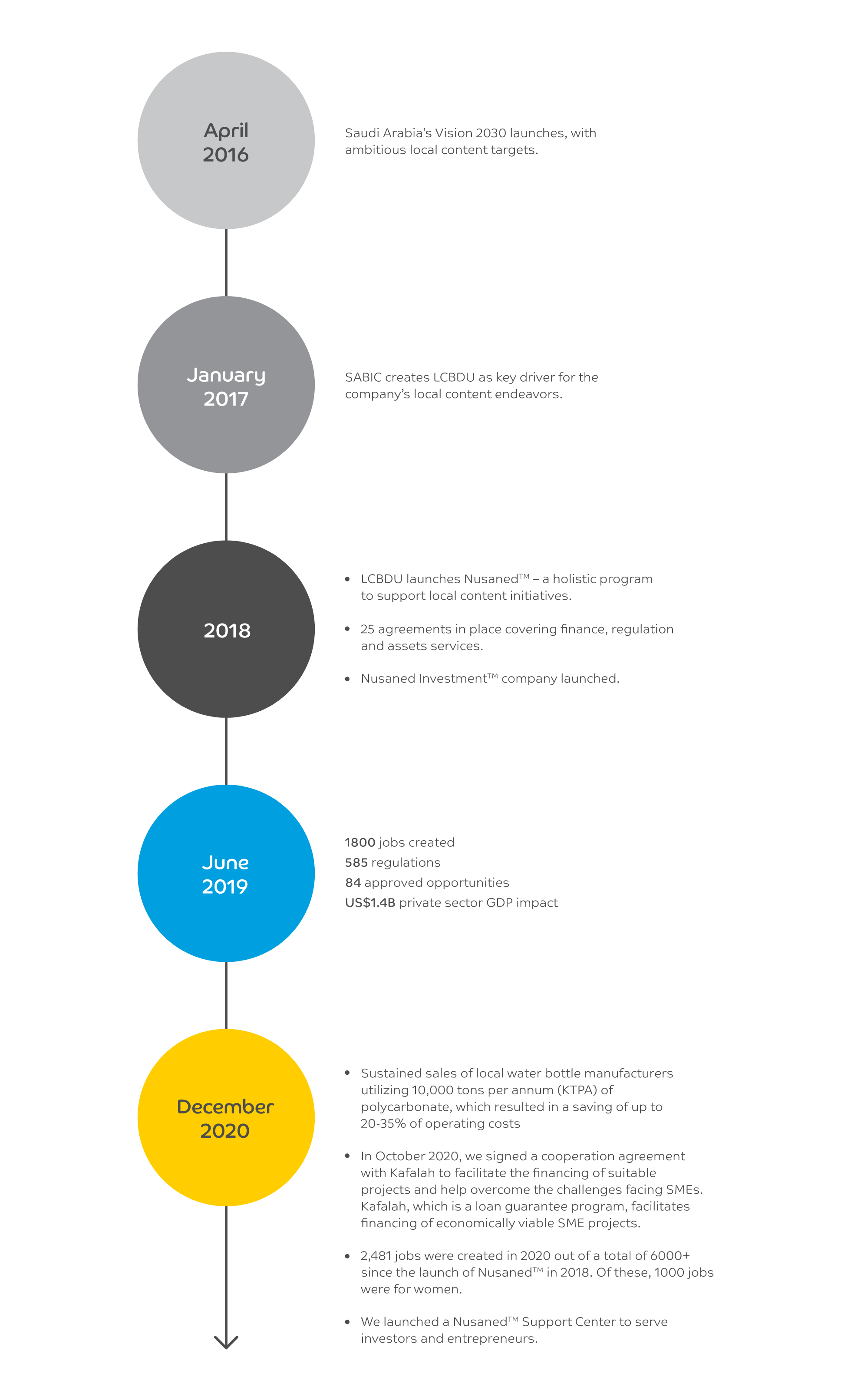About SABIC
Since SABIC’s founding, its employees have exhibited a remarkable ability to do what others said couldn’t be done
Since SABIC’s founding, its employees have exhibited a remarkable ability to do what others said couldn’t be done
Ranked among the world’s largest petrochemicals manufacturers, SABIC is a public company based in Riyadh, Saudi Arabia. 70% of the Company’s shares are owned by Saudi Aramco, with the remaining 30% publicly traded on the Saudi stock exchange.
SABIC began in 1976 by Royal decree and its growth has been nothing short of miraculous. Today, the company has operations in over 50 countries with a global workforce of over 33,000 talented individuals.

3rd
Largest public chemicals company

2nd
Largest company in KSA

68
Plants around the world
85
US Bn, Total assets
37.3
US Bn, Annual revenue
150
New products pa
11,738

Patents
Robust shared services setup

HR, IT, Finance, Legal
SABIC Academy

Strong training capability
SABIC’s Local Content Business Development Unit was set up in 2017 to run its local content initiative, Nusaned™.

Compare up to 4 grades
You already have 4 products for comparison
